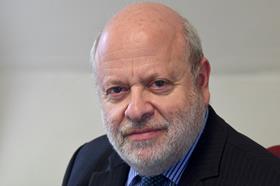We’re at a point in our history where a starry-eyed vision of what a solicitor does should be promoted.

Our regulator is on the ropes and its leadership under fire. It does not seem likely that a vision to uplift us in our role will be coming from that quarter.
And the rise of tech foresees a future where machines will supplant at least some of our performance, with machines attempting to apply a human understanding of complex moral values on a case-by-case basis. The companies concerned are largely owned by billionaires who have cosied up to an unpredictable foreign leader.
America is suffering its own domestic assault on the rule of law, and the American Bar Association has just published a message to inspire its members to remember their oath.
Lawyers’ output is difficult to judge, however, because we don’t build physical products.
When I go and see a film, I watch the credits, and sometimes I see the law firm to the production listed right at the end. But, unlike costumes or acting or set design, there’s no physical sign of their contribution. (Films are on my mind because I have just seen ‘A Real Pain’, the buddy movie around Polish Holocaust sites, and ‘A Complete Unknown’, the Bob Dylan biopic, both highly recommended.)
Alright, some lawyers get to hold a physical object. Those lucky enough to be part of a case which changes the law have something solid afterwards. I worked with the late James Flynn KC, who died a few months ago, and his name will appear as one of the counsel in the Akzo Nobel case (Case C‑550/07 P) before the Court of Justice of the European Union for as long as the EU and legal professional privilege continue to exist. (Unfortunately, we were on the losing side of whether in-house counsel should have the benefit of legal professional privilege in that case – but his obituary lists cases where his advocacy led to more winning outcomes.)
Most of our work is in the realm of moral values. Buildings will eventually fall down, and films can disappear. But our application of values every day of our professional lives – our ethical advice to our clients, our adherence to professional ethics ourselves, and our role in a system which delivers justice and the rule of law – means we work to build and maintain a long-lasting and invisible system, to give us pride even after our careers are over, as much as any object created. It just can’t be seen with the eyes.
For instance, it was reported some days ago that around 25 to 30 lawyers who had prosecuted rioters in the January 6 insurrection at the Capitol in the US had been fired because the president considered the prosecutions to be a grave national injustice. Of course, the prosecutors were simply carrying out the roles allocated to them in the common law’s adversarial system, by presenting the state’s case to the courts. It was the courts which made the final decisions on guilt or innocence (not that that justifies future action against the courts). I hope that the prosecutors, and their descendants, will be as proud of what they did as if they had helped carve Mount Rushmore.
As the ABA said in its statement: ‘Whatever your political party or your views, change must be made in the right way.’
And so we have come to the structure in which we work, which we maintain and sometimes change (see leading cases above). The ramshackle framework of justice and the rule of law is an invisible building. I don’t have to enumerate its virtues to a lawyer audience, but it is one of the great treasures of our country, even with its several faults (backlog of cases, unremunerative legal aid payments, disintegrating infrastructure, occasional grave miscarriages of justice).
Like a building whose foundations can be blown up, a justice system can also be subverted, and so have a temporary life like any object.
There is a fragment of a scene in ‘A Complete Unknown’ which shows that. The folk singer and activist Pete Seeger is found guilty of contempt of Congress for refusing to answer questions from the House of Un-American Activities Committee about his personal or political associations. The people who enforced such justice are now seen as villains, the resisters as heroes. The American justice system recovered, and until recently was a model, even with its faults (such as its high level of damages, the cost of lawyers and politically elected/appointed judges).
So we come to the conclusion. A solicitor’s job is the maintenance and improvement of the justice system, whether we work in conveyancing, trusts, corporate, family or crime. If it is in danger of subversion – as seems a possibility in the United States again now, following the flurry of executive orders and the take-over of federal payment systems – it is the role of lawyers to maintain its values against whatever pressure might arise (easy to say, difficult to do).
Cynics will scoff – oh, but the fees!
But we are custodians of invisible values in an invisible structure, which ensure that a civilised life can continue, based on notions of equality, fairness, justice, transparency and truth.
Jonathan Goldsmith is Law Society Council member for EU & International, chair of the Law Society’s Policy & Regulatory Affairs Committee and a member of its board. All views expressed are personal and are not made in his capacity as a Law Society Council member, nor on behalf of the Law Society































2 Readers' comments